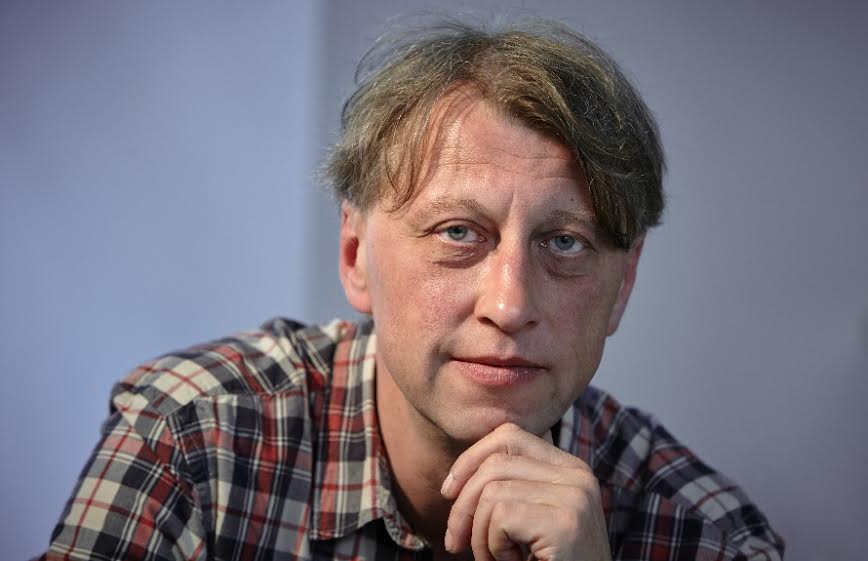Son to poet and playwright Josef Topol, brother to musician Filip Topol and grandson to writer Karl Schulz, he was born on August 4, 1962 in Prague, former Czechoslovakia. Like the older marginalised dissidents, he was forced to work as a stocker and stoker until 1986, and was pensioned for disability a few years before the watershed year of 1989. In 1986 he signed the Charter 77 human rights declaration and was politically active in the České Dětí (Czech Children) group. In 1988 he was briefly imprisoned for illegally crossing the Polish border and disseminating hostile anti-socialist materials. A freelance writer since 1991, he spent some years studying ethnology at the Prague Faculty of Arts. While still in the underground, he co-edited the Revolver Revue, serving as its editor-in-chief until 1993. He has also worked in the editorial offices of the Respekt weekly and the Lidové noviny daily, and is now programme director at the Prague Václav Havel Library.
From the laudation by Alenka Jensterle Doležal
In the thirty years of his writer’s career, Jáchym Topol has grown into an eminent Czech writer and won international acclaim. His works have been translated into English, German, Polish and many other languages. He has proved himself a master of language, an able and imaginative storyteller, skilled at extended and shorter narratives alike. He varies his narrative strategies and crafts recognisable poetics. His prose, oscillating between document and fiction, allots a major role to historical memory. In the memory of a given setting, Topol revives the agonies and injustices from the recent socialist era. His prose is existential, morally charged: his characters, more or less lost, roam “the maze of the world and rarely find the paradise of the heart”. While they, too, are often unable to discern the good under the domination of evil, they ever seek to “protect the orphans and widows”, and thus to find a moral balance in a chaotic world. They hail from the margins of society: boys, young intellectuals, labourers, criminals, drug addicts. His prose often revolves around Prague as the synonym for a junction of historical events, an intersection of civilisations and nations, a mythical city packed with cultural and symbolic codes. His most typical vehicle of expression is colloquial language, used especially in dialogues and enriched with images of a new, fictitious reality. In intertextual communication with other authors, this modern author forges links to the Czech and European traditions and takes his place among the authors of Central Europe. Like Hašek, Kafka and Hrabal, Jáchym Topol has left a permanent stamp on Central European literature.
Translated by Nada Grošelj
